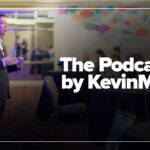Whenever I bring up longevity medicine among some fellow physicians, I can almost hear the unspoken objections before anyone says a word. There is a pause, a sideways look, maybe even a faint smirk. If I could translate those silent expressions into captions, they would say:
“If people stop getting sick, will not we all be out of business?”
Let us stop right there. That is like saying restaurants would all go under if more people started cooking at home. It ignores reality. The truth is, when people live longer and better, it does not put physicians out of work. It actually makes our job more interesting, more meaningful, and yes, more necessary. If we get longevity medicine right, we are not looking at the end of medicine. We are looking at its next, more advanced chapter.
Somewhere along the winding road of modern health care, we got boxed in. Over time, our role became largely reactive: the problem-fixers, the fire extinguishers, the ones you call when something is already gone wrong. We became masters of the rescue, but often at the cost of the long game. Medicine, in its truest sense, is more than just prolonging life. It is about enriching life. It is about preserving mobility so an older adult can keep dancing, protecting independence so they can still travel solo, and safeguarding mental sharpness so they can savour conversations and memories. Longevity medicine aligns perfectly with this vision. It is not about “staving off death” in a sterile, clinical sense; it is about maximizing quality of life for as many years as possible.
Let us be honest: People living well into their eighties, nineties, and even beyond one hundred will not put physicians out of work. They will create decades of opportunity for us to help them thrive. Knees and hips, much as we would like them to, do not come with lifetime warranties. If someone is skiing at 78, there is a good chance we will be replacing that knee at 79. The same goes for shoulders, hips, and other high-performance joints.
Screenings will not vanish, either. Colonoscopies and endoscopies will still be regular parts of care in a more active, engaged patient population. Fertility science may stretch reproductive years, which means OB/GYNs could deliver healthy babies to women in their forties more frequently.
Dermatologists? Your calendar will stay full. Skin cancers, rejuvenation treatments, stem cell therapies, and the perennial demand for cosmetic procedures will keep you booked. Vanity, after all, has no expiration date.
Mental health will only grow in importance. Longevity without cognitive health is not much of a win. Psychiatry, neurology, and primary care will remain central to helping patients maintain sharp minds, emotional resilience, and a sense of purpose.
Here is the part that excites me most: the kinds of stories we will get to share. Imagine walking into a patient room, and the conversation is not about the latest lab result or new diagnosis but about what they have accomplished.
An 82-year-old proudly slides a photo across the table of them crossing the finish line of a marathon. A 70-year-old animatedly describes their hike through the Rockies. A 65-year-old shows you a newborn picture and says, “Meet my first grandchild. I can still chase him around.”
That is medicine I want to practice, medicine that celebrates possibilities rather than just managing decline. And here is the reality: they will still need us to help them keep that momentum going. Longevity does not erase the need for doctors; it makes the relationship even more valuable.
I already hear the practical pushback: “This all sounds great, but how will we get paid?”
Numbers drive health care systems, and numbers respond to financial incentives. If preventing disease saves billions by keeping people out of hospitals, reimbursement models will shift. We have already seen glimpses of this through value-based care initiatives and expanded preventive health codes. Will it be seamless? Probably not. But systems adapt when they must, and the economics of longevity medicine will make adaptation unavoidable.
Thriving in a longevity-focused future requires a change in how we see ourselves. We must:
- View ourselves as partners in human performance, not just fixers of illness.
- Integrate preventive, regenerative, and functional approaches into our everyday skill set.
- Promote health as a lifelong pursuit, not a last-minute intervention.
This is as much about mindset as it is about medical training. It is moving from “What is broken and how do I repair it?” to “How do we keep you strong, capable, and thriving?”
My vision
I want to live, and practice, in a world where “old” is simply a chronological number, not a definition of capacity or worth. A world where patients are dancing in ballrooms, backpacking across continents, running nonprofits, starting businesses, and raising children decades beyond what is considered “normal” today.
For me, longevity medicine is not about fewer patients but more meaningful years with them. It is about stronger relationships, deeper trust, more opportunities to enhance quality of life, and plenty of room for innovation, procedures, and research that push the boundaries of what is possible. This is not the end of our profession. It is the beginning of a new chapter that will be more creative, collaborative, and fulfilling than the last.
And honestly? I cannot wait to be part of it.
Tomi Mitchell is a board-certified family physician and certified health and wellness coach with extensive experience in clinical practice and holistic well-being. She is also an acclaimed international keynote speaker and a passionate advocate for mental health and physician well-being. She leverages over a decade of private practice experience to drive meaningful change.
Dr. Mitchell is the founder of Holistic Wellness Strategies, where she empowers individuals through comprehensive, evidence-based approaches to well-being. Her career is dedicated to transforming lives by addressing personal challenges and enhancing relationships with practical, holistic strategies.
Connect with her on Facebook, Instagram, and LinkedIn, and book a discovery call to explore how she can support your wellness journey. For those interested in purchasing her book, please click here for the payment link. Check out her YouTube channel for more insights and valuable content on mental health and well-being.




















![Stopping medication requires as much skill as starting it [PODCAST]](https://kevinmd.com/wp-content/uploads/The-Podcast-by-KevinMD-WideScreen-3000-px-4-190x100.jpg)
![Weaponizing food allergies in entertainment endangers lives [PODCAST]](https://kevinmd.com/wp-content/uploads/The-Podcast-by-KevinMD-WideScreen-3000-px-3-190x100.jpg)

![AI censorship threatens the lifeline of caregiver support [PODCAST]](https://kevinmd.com/wp-content/uploads/Design-2-190x100.jpg)
